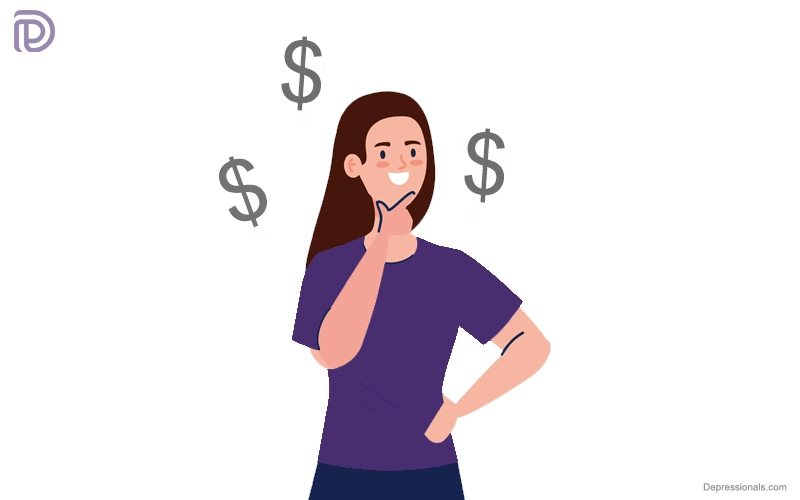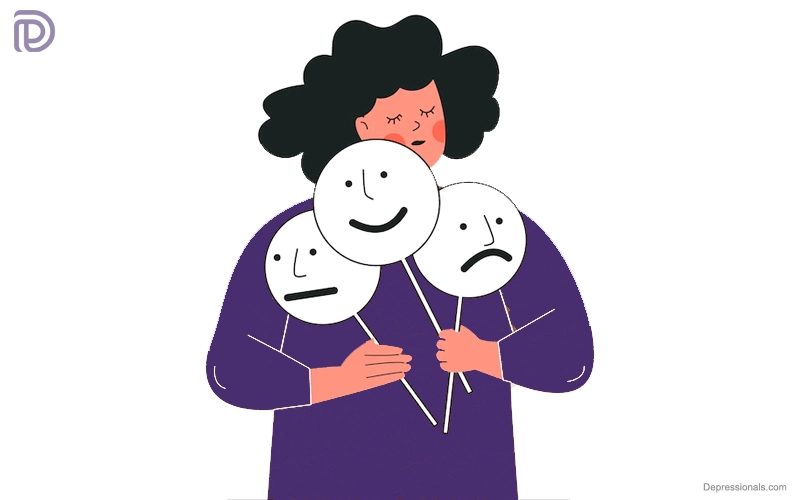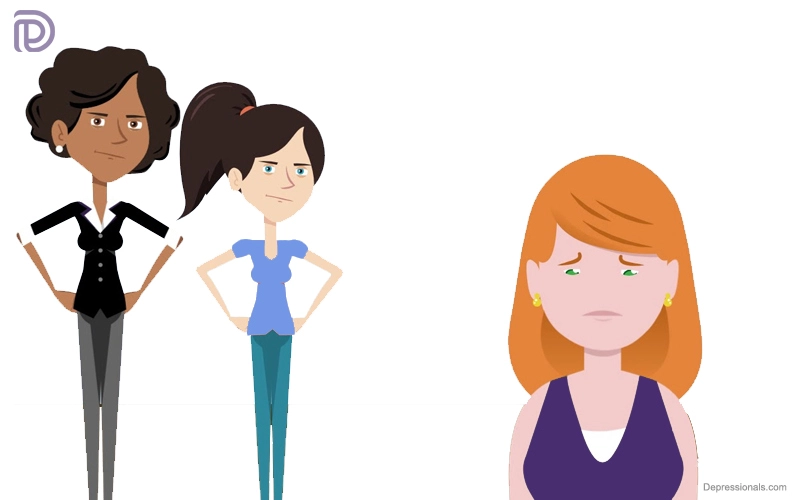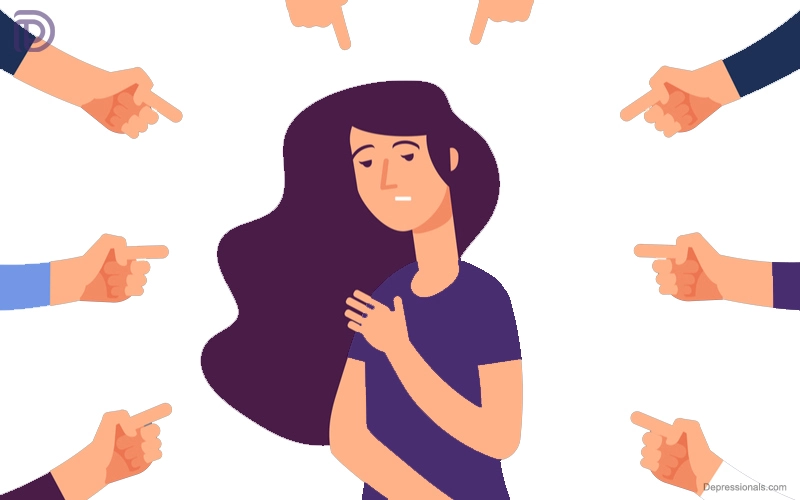What is antisocial personality disorder?
People with antisocial personality disorder (ASPD) exhibit a lack of empathy for others. Antisocial personalities are not concerned with what is right or wrong. Their actions are often insensitive or unfeeling, and they often antagonize. People with this disorder may lie, act aggressively or violently and engage in criminal activity.
Related: Social Anxiety Disorder
Antisocial personality disorder symptoms
The following are the symptoms of antisocial personality disorder:
- Children may display symptoms during early childhood, including fire setting, animal cruelty and trouble with authority
- Individuals with legal problems are likely to have failed to conform to social norms and not been concerned with others’ rights
- They act impulsively, without considering the consequences
- Often engage in physical assaults due to aggressiveness and irritability
- Can’t empathize with others
- Do not show remorse for destructive behaviors
- Children of abused or neglected parents often have poor or abusive relationships with others
- Lying and deceiving others often for personal gain
Life can be very challenging for people with these characteristics. In order to avoid harmful disregard for others, we must be able to take into consideration their thoughts, feelings and motivations.
In adulthood, the disorder can negatively affect its sufferer as well as anyone who comes into contact with it. A person with an antisocial personality disorder is more likely to take risks, engage in dangerous activities, and commit crimes. It is often described as a disorder in which the sufferer is without conscience and feels no remorse or regret for his or her actions.
Readout all: Personality Disorders
Antisocial personality disorder causes
A variety of factors contribute to the development of personality, including nature and nurture. However, the exact cause of antisocial personality disorder is unknown.
Genetics
An increased incidence of ASPD is seen among first-degree biological relatives of those suffering from the disorder compared to the general population. Research indicates that ASPD is somewhat inherited and probably made worse by environmental influences.
Upbringing
Also, upbringing plays a significant role. A child’s parental behavior – including abuse, neglect, and trauma – can also contribute to ASPD development. If a child is raised by abusive or dysfunctional parents, they are likely to learn these behaviors and incorporate them into their parenting.
Disorganized and neglected homes also do not provide children with the opportunities they need to develop strong senses of discipline, self-control and empathy for others.
Also, check: Side Effects of Overthinking
Brain differences
Smoking during pregnancy as well as abnormal brain function is found to increase the risk of the disorder. The frontal lobe is a region of the brain involved in planning, judging, and planning. Research suggests that people with ASPD have differences in the area.
The disorder also causes people to need greater stimulation, and therefore, to increase their arousal to a healthy level, they might engage in dangerous or even illegal activities.
You should know about Insomnia disorder.
APD diagnosis
It is not unusual for children with an antisocial personality disorder to exhibit symptoms as early as childhood, but the condition is often only recognized as an adult disorder. People with this disorder are prone to experiencing violent bursts of anger as children, showing cruelty to animals, and being called bullies by their peers.
A child may be affected by the condition, but it can not be officially diagnosed before the age of 18. Conduct disorder is diagnosed in children who display these symptoms.
Antisocial personality disorder nursing diagnosis starts before the age of 15 if the individual disregards and violates others’ rights. When one of these seven symptoms is present, this disregard is apparent:
- Self-disregard and disregard for others’ safety
- Disobedience to the law
- Impulsive behavior
- Aggression and irritability
- Absence of remorse for actions
- Lie to gain profit or amusement from others
- Irresponsible behavior
A person must display at least one of these symptoms and be over the age of 18 as well as not display antisocial behavior due to another disorder, such as bipolar disorder or schizophrenia.
Some critics believe that the DSM diagnostic criteria focus too heavily on behaviors that are associated with crime. Behavioral experts have raised concerns that diagnosis may sometimes be misapplied to those living in low socioeconomic or urban environments, where seemingly antisocial behavior may be an element of survival strategies.
This may have led to an overestimation of the prevalence of this disorder.
Antisocial personality disorder tends to affect more men than women, according to the DSM-V, with a prevalence of 0.2% to 3.3%.
Read: Effects of Bullying on Mental Health
Antisocial personality disorder treatments

It is difficult to treat antisocial personality disorder for a number of reasons. Treatment for the disorder is rarely sought by individuals. Patients who request antisocial personality disorder treatment management and prevention normally have to go through some type of legal system intervention.
Even though people with ASPD frequently interact with the criminal justice system, research indicates that incarceration and other punitive measures have little effect, as the condition usually makes people unresponsive to punishment.
Check: Types of Overthinking
Psychotherapy
A cognitive-behavioral therapy (CBT) can help gain insight into behaviors and change maladaptive thought patterns. A long-term treatment program is usually necessary for achieving effective results.
A number of treatments have been investigated for ASPD, as well as mentalization-based therapies, which target the capability of recognizing and understanding the mental state of self and others.
Recommended: How to help someone with Depression
Medication
An ASPDl patient may be prescribed medication to relieve some of their symptoms. Medication may include:
- Anti-anxiety medications
- Antidepressants
- Antipsychotics
- Mood stabilizers
Recommended: Multiple Strategies to Control Overthinking
Coping
In many cases of antisocial personality disorder, people find it difficult to cope with everyday life because it has a significant impact on their functioning.
- As per the DSM-5, these actions could lead to incarceration, injury or death.
- It impacts how an individual works and maintains relationships.
- A person with an anxiety disorder may also harm their family, friends, co-workers or strangers by their actions.
ASPD sufferers do not seek help on their own and are more likely to be intervened in due to legal issues. According to research, those with stronger social support and better ties to their families and spouses have the best outlook.
You may find it useful to speak with a mental health professional if you have a loved one with ASPD. As a result, you will be able to set boundaries that protect you from harm if you learn coping skills from them. Support groups and group therapy can also be useful resources for support and information.
Is antisocial personality disorder curable?
Currently, antisocial personality disorder has no known cure. Despite this, some individuals with antisocial personality disorder can be treated and become more aware of what their actions are doing to others with treatment—especially those with strong social ties and support from their families.
Complications
Antisocial personality disorder can result in a variety of complications, consequences, and problems, including:
- Abuse or neglect of a spouse or child
- Substance abuse or alcoholism problems
- Having been jailed or imprisoned
- Suicidal or homicidal behavior
- Having depression or anxiety as well as other mental health disorders
- Homelessness and low socioeconomic status
- Violence usually results in a premature death
Prevention
It is impossible to prevent those at risk from developing antisocial personality disorder. Early warning signs of antisocial behavior may be seen by parents, teachers and pediatricians because the behavior is regarded as having its roots in childhood. By identifying those at risk, like children who exhibit signs of conduct disorder, and offering early intervention, you can help them.
Bottom line
People with ASPD act without considering how their actions may affect others. There is a possibility that someone with ASPD will break laws or rules. There is often no remorse or responsibility shown by them. People with ASPD may benefit from psychotherapy and certain medications. Their thoughts and behavior may be controlled with treatment. Psychiatrists and psychologists diagnose ASPD with extensive assessments. Their recommendations can help you find a treatment plan that will work for you.






Saved as a favorite, I like your website!
It is not my first time to go to see this site, I am visiting this site daily and obtain pleasant data from here all the time.
Hello there! I know this is kind of off topic but I was wondering which blog platform are you using for this website? I’m getting tired of WordPress because I’ve had problems with hackers and I’m looking at alternatives for another platform. I would be fantastic if you could point me in the direction of a good platform.
Hey There. I found your blog using msn. That is an extremely smartly written article. I’ll be sure to bookmark it and return to read more of your useful information. Thanks for the post. I’ll definitely return.
I appreciate you for delivering these helpful, trusted, revealing and unique thoughts on this topic to Sandra.
Hi! Someone in my Facebook group shared this site with us so I came to check it out. I’m definitely enjoying the information. I’m bookmarking and will be tweeting this to my followers! Terrific blog and amazing design and style.
Thanks for your publication.
I like what you guys are up too. Such smart work and reporting! Carry on the excellent works guys I have incorporated you guys to my blogroll. I think it’ll improve the value of my website 🙂
Top site ,.. amazaing post ! Just keep the work on !
Magnificent site. Lots of helpful information here. I am sending it to several buddies ans also sharing in delicious. And of course, thanks to your effort!
Thank you, I have just been looking for info about this subject for ages and yours is the greatest I have discovered till now. But, what about the conclusion? Are you sure about the source?
Wonderful post, very informative. I wonder why the other experts of this sector do not notice this. You should continue your writing. I’m confident, you’ve a great readers’ base already!
Many thanks for the post.
Thanks for your post on the vacation industry. We would also like to add that if you are one senior contemplating traveling, it’s absolutely essential that you buy travel insurance for older persons. When traveling, older persons are at high risk being in need of a medical emergency. Obtaining right insurance plan package in your age group can look after your health and provide peace of mind.
I’m not that much of a online reader to be honest but your sites really nice, keep it up! I’ll go ahead and bookmark your site to come back later. Cheers
My partner and I stumbled over here different web page and thought I might check things out. I like what I see so i am just following you. Look forward to looking over your web page yet again.
My brother suggested I might like this blog. He was entirely right. This post actually made my day. You can not imagine just how much time I had spent for this info! Thanks!
Thanks a lot for providing individuals with remarkably superb chance to read critical reviews from this site. It is often very pleasant and as well , stuffed with amusement for me personally and my office friends to search your web site more than 3 times in one week to read the fresh stuff you have got. And indeed, we are usually satisfied for the tremendous knowledge served by you. Some 4 tips in this posting are honestly the most efficient I have ever had.
I have been absent for some time, but now I remember why I used to love this website. Thank you, I抣l try and check back more often. How frequently you update your website?
Helpful info. Lucky me I found your site accidentally, and I’m surprised why this coincidence didn’t came about in advance! I bookmarked it.
Thank you for every other informative site. Where else could I am getting that type of information written in such a perfect means? I have a venture that I am just now operating on, and I have been at the glance out for such info.
Thanks for the tips you have shared here. In addition, I believe there are many factors which keep your car insurance premium all the way down. One is, to take into consideration buying cars that are inside good list of car insurance companies. Cars that are expensive are more at risk of being robbed. Aside from that insurance coverage is also in accordance with the value of your automobile, so the higher priced it is, then the higher your premium you only pay.
Thanks for your article on this weblog. From my very own experience, there are occassions when softening up a photograph could provide the photo shooter with a chunk of an artsy flare. Sometimes however, the soft cloud isn’t precisely what you had as the primary goal and can usually spoil an otherwise good picture, especially if you thinking about enlarging the item.
We are a gaggle of volunteers and starting a new scheme in our community. Your website offered us with valuable information to work on. You’ve performed a formidable job and our entire neighborhood might be grateful to you.
Thanks for another magnificent article. Where else could anybody get that type of information in such a perfect way of writing? I have a presentation next week, and I’m on the look for such info.
Those are yours alright! . We at least need to get these people stealing images to start blogging! They probably just did a image search and grabbed them. They look good though!
The article is good. Thank you so much.
My brother suggested I might like this web site. He was entirely right. This post actually made my day. You cann’t imagine simply how much time I had spent for this information! Thanks!